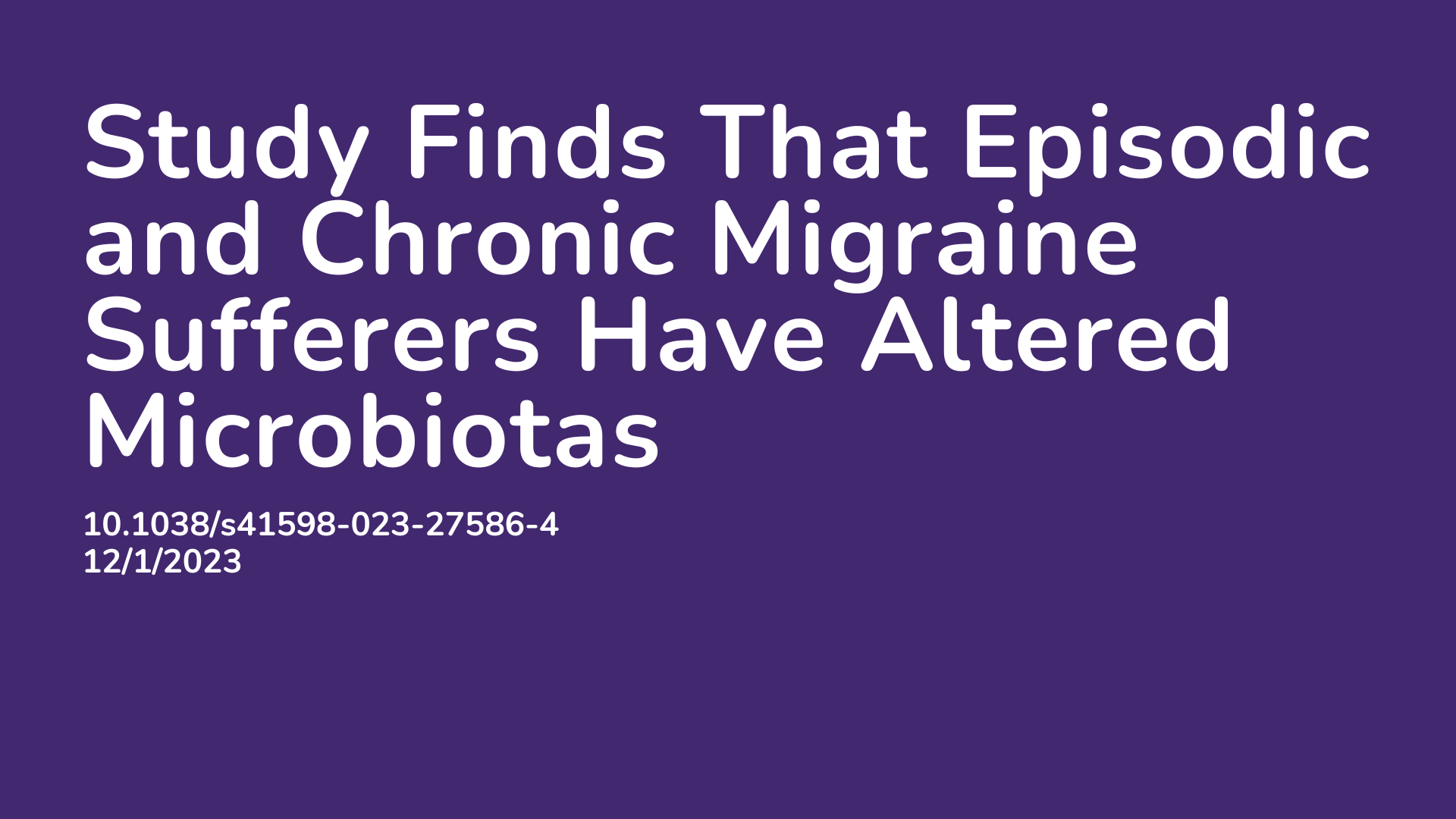Summary:
The gut-brain axis, which refers to the relationship between the gastrointestinal tract and the brain, is influenced by several factors including microbiota. Microbiota are the micro-organisms that exist within the gastrointestinal tract and play an important role in influencing the health of our brain, including the incidence of migraines. This study aimed to assess whether the presence and composition of microbiota in the gastrointestinal tract was different in participants with episodic and/or chronic migraine compared to participants without migraines. The results showed that higher compositions of particular micro-organisms were strongly associated with a lower headache frequency, and others were associated with higher and more severe headaches. The findings of this study provide important evidence that certain micro-organisms may be associated with the presence of migraines and that altered gut microbiotas exist in episodic and chronic migraines. These findings will assist in further understanding prevention and treatment of migraines.
Abstract:
Emerging evidence reveals a close association between gut microbiota and human neurological disorders. The present study aimed to assess whether the composition of gut microbiota in participants with episodic migraine (EM) and chronic migraine (CM) was altered in comparison to that of the controls. This study was a cross-sectional, case–control study. The gut microbiota were evaluated by the partial, targeted sequencing of the 16S rRNA V3–V4 region. This study enrolled 42 and 45 participants with EM and CM, respectively, and 43 controls. Alpha and beta diversities revealed no significant difference among the three groups; however, the microbiota composition at the class, order, family, and genus levels differed significantly between EM and the control, CM and the control, and the EM and CM groups. Moreover, higher composition of PAC000195_g was significantly associated with a lower headache frequency among the five genera that exhibited significantly different microbiota composition in EM and CM. Agathobacter revealed a significant negative association with severe headache intensity. The findings of the present study provide evidence of altered gut microbiota in EM and CM. These findings will help in understanding the course and treatment of migraine.
Article Publication Date: 12/1/2023
DOI: 10.1038/s41598-023-27586-4



